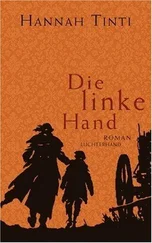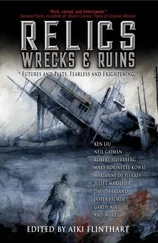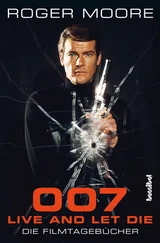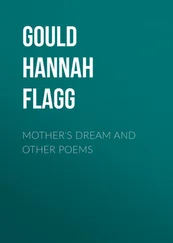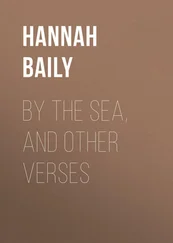I went to the Bibliothèque Nationale, where I learned that Fifi was out of print and had never been translated. My aloneness suddenly had a purpose. Wrapped up in my translating project, I barely went outside for my remaining four months in Paris. I was forcing myself to stay until the following December; it would have been too shameful to run back to my father’s house without spending at least a year there.
Without meaning to, I had abandoned the translation after I got back to the States. But when I woke up in a hungover panic one dawn, Jared snoring beside me, I scoured my email hoping for some distraction, and found the attachment I’d sent myself the day before I left France. I read through what I’d translated so far. Not bad. I had about two-thirds of the book left to get through. My mind fell inside the task, relieved to be put to use.
CARPINTERIA
Around the time I resumed my translation project, a lawyer representing a Guantánamo detainee came to Carpinteria to give a talk at the library. It seemed substance was conspiring to enter my life. The lawyer was short and curvy, wearing a navy pantsuit and high stilettos in which she seemed perfectly at ease as she paced before the small crowd. Her client was a young father who was sold into U.S. custody in Pakistan, a country we’ve never been at war with. He was fitted with sensory deprivation goggles and earmuffs, then shackled to the floor of a plane in a painful stress position for the long ride to Cuba. He was not told where he was going or why. Once at Guantánamo, he spent his days either alone in wire cages or being interrogated. His fingers were broken. His head was stuffed down a toilet. He was deprived of sleep for days. Early into his captivity, the government concluded that he represented no threat yet took no steps to free him. When the lawyer attempted to get him tried before the military commissions, they denied his petition because he was already cleared for release and so had no need of a trial. “It’s like something out of Kafka,” she said. This was her only bit of editorializing. She was straightforward, unpoliticized. When someone asked why she decided to represent a Guantánamo detainee, she said, “Because it’s my job. Protecting the Constitution. That’s what I was trained to do.”
I approached the lawyer afterward and asked if she would be willing to let us publish her talk in the Carp Weekly , at which I implied I had more power than I did. I wasn’t thinking about logistics. I was overwhelmed by love. It had been so long since I’d felt awed by another human.
I begged Donnie to run the talk as a cover story. He agreed in the manner of someone letting an underling play at power. No matter. This was the closest I’d ever come to activism. A week after the issue came out, Donnie stopped by my desk. “Very few people picked up the torture issue,” he said. “We have hundreds of extras.” The implication was clear: This was a failed experiment; now we’d go back to giving the people musicians and wineries and summer-camp guides. Indeed no one but Jared — and my father, ad nauseam — commented on the lawyer’s article to me, to which I’d added sidebars explaining relevant bills and Supreme Court rulings. Why was it so fucking hard for me to do one decent thing?
It seemed I needed a job that required me to be alone a lot of the time. I made lists of publishers and literary journals and began sending off sample chapters of Fifi .
—
I got most of my translating done after I broke up with Jared, which I did often, usually when I was drunk. One time, I broke my bedroom window at the same time, trying to yank it open to dump Jared’s beer outside, shrieking that he was a drunk and a loser and this was the last time I was going to let him hurt me. When the window came out of its frame and crashed into the yard, crushing sixty dollars’ worth of freshly planted flowers (according to my roommate’s quiet, embarrassed estimate the next day), Jared laughed. I shrieked at him to get the fuck out, I was done with him, done. He was still laughing when he walked past the crushed flowers and broken glass, out onto the empty, yolky street. A Sunday, dawn. Nowhere to be, no one to answer to, Clam Shack would be serving Bloody Marys soon, the ocean was huge and the world was beautiful.
After our breakups, I would feel strong in my anger during the day, eating a lot, running a lot, laughing a lot at nothing in particular, believing that whatever flaws I had, it was Jared — discrete Jared, a real person who was not me — that had turned my life into an obscene performance of resistance.
I had one good friend in Carpinteria, a girl who worked in sales at the newspaper. She was the least analytical person I’d ever met. I could talk to Caitlin about Jared all I wanted, but the conversation would never verge on problem solving. She was interested in specific facts of human behavior — what our sex had been like the night before, whether he had slapped another girl’s ass again, how I had responded this time — but she tolerated no feeling-talk. She drank a lot of beer, which made her raunchy without being flirtatious: She’d shout in a crowded bar, “Does anyone have a tampon?” or have guys buy us drinks all night and then, just as the interaction was moving into the realm of the sexual, scare them away by saying that most women experienced more pleasure with a vibrator than an actual man or that the only man she’d ever been really attracted to was her grandfather. She was daring men to be strong enough to subdue her chaos. She made me laugh and laugh.
Caitlin was the first person I called each time I broke up with Jared, although I stopped telling her that’s what I’d done after the first couple of attempts failed to last. We would go out and I’d let myself be swept along by her harmless mania. But as soon as I got in bed later and tried to sleep, I became a baby alone in a cave, freezing and starving, helpless to do anything but writhe and bite the blanket and clutch my crotch and stick my fingers into my dry pussy and into my dry mouth and sweat and get the chills and pull my hair, all the while seeing myself at the bottom of a deep, narrow hole in the ground, looking up, glimpsing a face at the top, the one who could lift me out of the hole — there, then gone. A scene from Silence of the Lambs : one of Hannibal’s victims, kept barely alive at the bottom of a hole. I had known the movie would give me nightmares; even Oliver Twist gave me nightmares. But a boy named Simon (accent on the o , Bolivian, prematurely mustached, drawer of raunchy comics that he slipped into my desk in English class) had invited me to watch the cannibal movie, and my thoughts were always a drunken crowd clamoring for his attention in eighth grade. So I watched it and let him French kiss me and had nightmares for weeks afterward.
Hell is a state of ceaseless, fruitless relating. The effort makes you so cold and alone that you believe you will die. In fact you would like to die. But the urge for self-preservation is too strong. So instead of dying you build a fire and hurl flaming sticks out in all directions. There is relief at first. Anger believes in itself. Anger will save you. But soon the fire consumes everything with which you had hoped to make contact, until you are alone in the center of the blaze, still unable to stop hurling sticks because the fire has consumed every other possible means of relating and all you want — the only thing you need to calm down — is to have an impact on something other than yourself. Impossible, from where you sit. You cannot exert a force on anything that is not also exerting a force on you. Newton’s law, the only thing I retained from high school science. But equally impossible to stop trying. So the only hope was to exhaust myself in the effort.
Читать дальше


